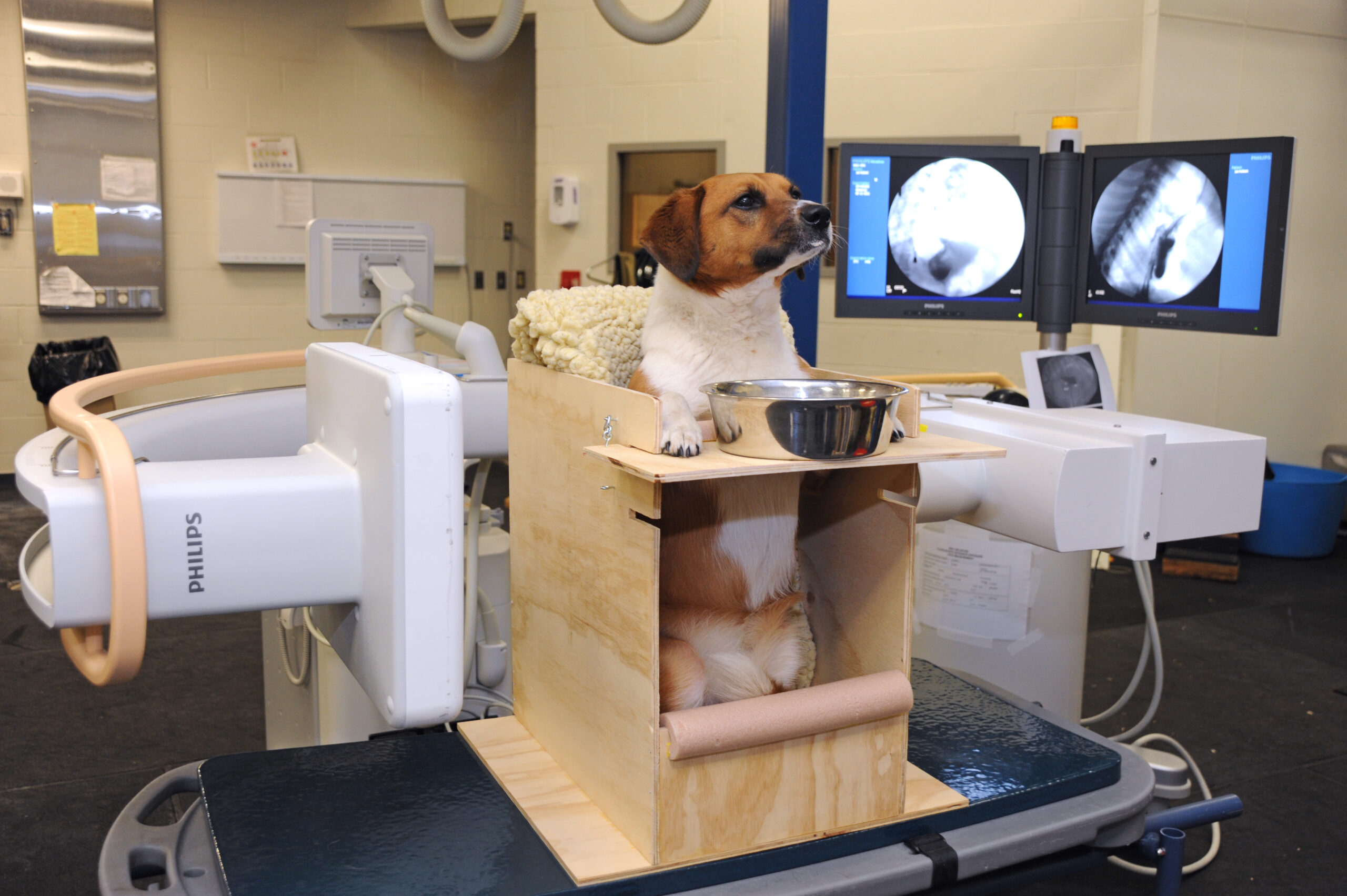
Home
The Megaesophagus Care and Research Center is the website for the Washington State University College of Veterinary Medicine’s megaesophagus research interest group. This group is headed by Dr. Jillian Haines, a veterinary small animal internal medicine specialist. The site provides information on active and upcoming megaesophagus related research studies happening here at WSU, and also includes information on previous research studies completed here and around the world.
What is Megaesophagus?
Megaesophagus (ME) is a condition in which the esophagus loses the ability to contract and move food down into the stomach. Subsequently the esophagus becomes dilated and any food or water that is consumed will simply remain within the esophagus until it is passively regurgitated. Regurgitation often occurs unexpectedly and may come as a surprise to the animal or occur while they are sleeping. They are therefore unprepared to close off the opening to their windpipe and can inhale the food or water. As a result they often develop severe pneumonia. This pneumonia and the decision to euthanize because of pneumonia is the leading cause of death in animals with megaesophagus.

How does ME occur?
Megaesophagus can occur due to a large number of underlying diseases such as myasthenia gravis, hypothyroidism, hypoadrenocorticism, toxicities, infectious disease, cancer, or other neuromuscular diseases. In most cases of puppies the cause is often congenital but in some cases the esophagus can be constricted by an abnormal blood vessel formation (vascular ring anomaly). In most adult dogs ME occurs due to an unknown cause (idiopathic).